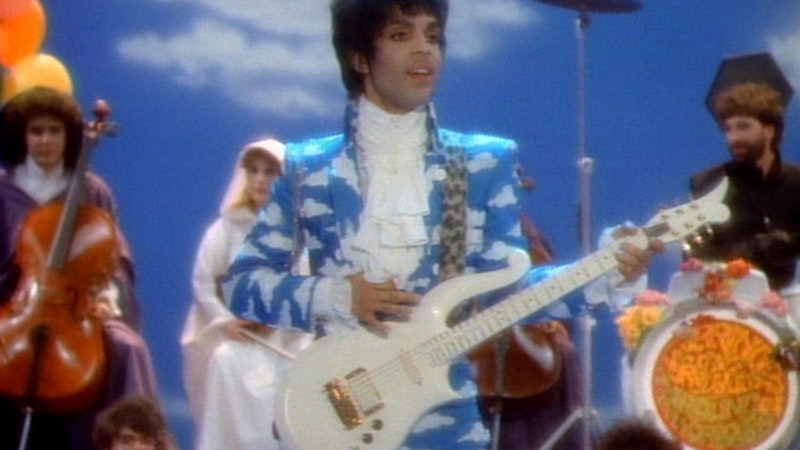Prince was by himself, eating. He’d been on the show and now he was throwing an afterparty. The food on offer was macaroni and cheese, for some reason, and the world’s greatest pop, soul, funk, and rock musician was tucking in. Fred Armisen saw his chance. Gingerly the Saturday Night Live performer approached his hero and announced that he thought Prince was the greatest. Perhaps Prince looked up, though probably not; Armisen doesn’t say. He does tell us Prince’s response. “You know what I think the greatest is?” the tiny genius demanded. Armisen indicated that he didn’t. “This macaroni and cheese,” Prince said.
The comedian found he had nothing to say. Nor could he turn around. Putting one foot behind him and then the other, he backed away from the presence. Ten years later Armisen told the story when he appeared on The Howard Stern Show with a couple of other SNL alums. Guffawing and headshaking ensued. Only Howard pointed out that the phenomenal guitarist, singer, songwriter, producer, and stage performer had treated Armisen rather poorly. The others didn’t buy it. “Ultimately Prince, like, Prince’s responsibility was always to be Prince,” said Seth Myers.
Stories about celebrity encounters with the Little Strange One usually involve bad behavior on his part. But the people telling the stories don’t seem to mind. Along with the laughter and the bemused headshaking, there’s a certain wonder, even gratitude. In this way the celebrities are like the rest of us. At the back of the mind we all have a sense that this foreshortened, brilliant man was only accidentally human. His eternal being stuck a toe, metaphorically speaking, down in our sphere and he was assigned a body, a face, and a life. Therefore, he walked among us. But, we tell ourselves, his greater being belonged to a different order, an order that was superior, alien, and unknown. When he laughed at one of us, it was for reasons we couldn’t get and didn’t expect to. As a result nobody sweated it too much.
Consider the famous moment toward the start of the “Raspberry Beret” video. The music’s pumping as the miniature dandy prances toward the stage. He accepts his guitar from an acolyte; he’s ready to go. Then he fools us. Abruptly switching up, he folds at the waist and cranes off to the side. While there he performs a splendid three-stage cough, which he caps by the solicitous touching of a hand to his throat. Moments later, when he’s standing straight again, his lashes dip and he allows the left side of his mouth to rise by an eighth of an inch. In a sense he’s coquettishly sharing a joke; the catch is that he’s doing so with nobody. Not a kindly joke, one expects, not with that quirk to his mouth. But it’s all right. Nothing personal because Prince himself doesn’t seem like a person. Some poor individuals lack character and definition and we unconsciously tag them as being a bit short of peoplehood. Prince was at the other end of the scale. He burst out of our measurements instead of falling short.
We laugh at him too. That set, that costume—what a pile-up of funny white clouds and imitation blue sky. Plus the eyeliner and the flouncing (with his hands flipped up straight from the wrist in mid-sashay), the tricked-out crowd working their hips and snapping their chins, the pointlessness of the lyrics attached to the magnificent tune, the little teetotaler’s gall in staging his costume-party burlesque of psychedelia in 1985. And then the cough. He dazzles our little world but he doesn’t fit it, and like any misfit he’s laughed at. But this one is also worshipped. He doesn’t compute but we can never forget that he’s superior. Perhaps the effect would be different if he were five-foot-seven or above. But he was five-feet tall and change, and also one of the great geniuses of our time. He was laughable but he was better than us, and every time he was laughable—or rude or just weird—we remembered as much. He did nothing like anyone else, and everything just the way he wanted to.
Fred Armisen spoke his heart and then had to shuffle away, shamefaced. Yet he didn’t get mad; he wasn’t even sure what Prince had meant by it all. The different levels of the universe make little sense to each other. If a higher order ever does impinge on us, its representative may sit there eating macaroni and cheese, and years afterward the sighting will be still discussed and marveled at. But we’ll never really get a handle on it and we won’t expect to, not after Prince. That much he was able to teach us.

